
Astro Synthetic Botanist
My research background has focused on how plant genes turn on and off, and how we can engineer this to develop better, more versatile genetically modified crops. I have studied the basically processes of alternative splicing of transcripts, RNA decay, transcriptional repression and epigenetics, largely through a genomic’s lense, which allows me to take advantage of high-throughput sequence of DNA and RNA to study all of the genes of the genome at once.
Since joining Plant Energy Biology, I have focused my efforts on the creation of synthetic gene circuits. These are analogous to electronic circuits, which underpin modern computing. While we are not (yet) connecting electrodes to plants for this work, we take inspiration from how simple circuit components can be build used to generate circuits with different outputs. We have build circuits requiring both inputs to be on before the output is activated (an AND gate), but also a circuit that only requires one of two inputs to be on in order for the output to be made (OR gate), along with a range of other logic processes to customise the output based on input conditions. I led the creation of memory circuits that use DNA recombinases, that can permanently alter the DNA sequence in order to create the desired input-output response (link to article). I have also contributed to the creation of reversible gene circuits that take advantage of CRISPR interference to repress the output gene (link to article).
Currently I go by the title of “Astro Synthetic Botanist” as I try to apply our synthetic gene circuits to the problems of growing plants in space (and also in harsh environments here on Earth). As part of the ARC CoE in Plants for Space (P4S), we aim to make nutritionally complete plants that can satisfy all your dietary needs, as well as plants that act as bioproduction factories for important products, including therapeutics, that can be produced and purified locally in remote locations.
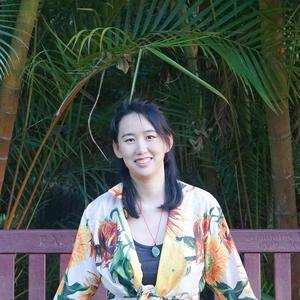
Phyllosphere microbiome induces host metabolic defence against rice false-smut disease
Mutualistic interactions between host plants and their microbiota have the potential to provide disease resistance. Most research has focused on the rhizosphere, but it is unclear how the microbiome associated with the aerial surface of plants protects against infection.
Here we identify a metabolic defence underlying the mutualistic interaction between the panicle and the resident microbiota in rice to defend against a globally prevalent phytopathogen, Ustilaginoidea virens, which causes false-smut disease.
Analysis of the 16S ribosomal RNA gene and internal transcribed spacer sequencing data identified keystone microbial taxa enriched in the disease-suppressive panicle, in particular Lactobacillus spp. and Aspergillus spp. Integration of these data with primary metabolism profiling, host genome editing and microbial isolate transplantation experiments revealed that plants with these taxa could resist U. virens infection in a host branched-chain amino acid (BCAA)-dependent manner.
Leucine, a predominant BCAA, suppressed U. virens pathogenicity by inducing apoptosis-like cell death through H2O2 overproduction. Additionally, preliminary field experiments showed that leucine could be used in combination with chemical fungicides with a 50% reduction in dose but similar efficacy to higher fungicide concentrations. These findings may facilitate protection of crops from panicle diseases prevalent at a global scale.
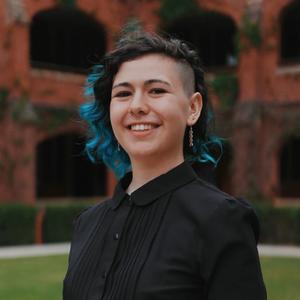
I am a molecular biologist currently pursuing a PhD focusing on developing innovative tools for controlling protein expression in chloroplasts. My research takes place within the dynamic environment of the ARC Centre of Excellence in Plants for Space, where I collaborate with a diverse group of scientists dedicated to advancements that could potentially support life beyond Earth.
My passion for genetics began at age 11 after watching a documentary about scientists genetically modifying chickens to grow long tails by harnessing their close relationship to the T-rex. This fascination led me to undertake a bachelor's degree in genetics, and today, I find myself working in the exciting field of synthetic biology.
My research journey started with my honours project in the Small lab, where I developed a high-throughput system for testing designer RNA editing factors. Now, as a PhD student in the same lab, I focus on optimising synthetic start codon editing factors based on the PPR protein scaffold to initiate translation in chloroplasts.
Equipped with a robust academic background and diverse research experiences, I tackle complex biological challenges using my interdisciplinary interests in genetic engineering, pharmacology, plant biochemistry, and bioinformatics.

Research:
I'm a current PhD candidate in the Lister Lab. My project seeks to develop several RNA-based tools to control plant genes, with the primary intention of modifying plant traits for improved agricultural and astro-agricultural use. Alongside this, I am passionate about exploring the WA biotech industry and commercialisation routes available to translate research into real-world solutions.
My journey began when I was initially drawn to medicine, however, through a university lab immersion, I discovered a real passion for research. Motivated by this, I spent my undergraduate degree working as an unpaid research assistant in several labs. This hands-on experience helped inspire my future direction and helped with developing the technical skills required for a PhD.
At the start of my PhD, I was fortunate enough to be granted a Westpac Future Leaders Scholarship, which alongside a Jean Rogerson Postgraduate Stipend I plan to use to continue developing and exploring my passion for Synthetic Biology.
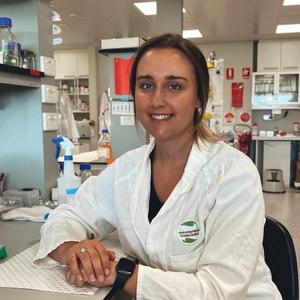
I am a plant geneticist currently pursuing a PhD in Ian Small's lab at the University of Western Australia, within the Plant Energy Biology node of the ARC Centre of Excellence Plants for Space. My research focuses on molecular genetics, specifically the post-transcriptional regulation of the chloroplast genome. I aim to advance the field by identifying binding sites of RNA-binding proteins to investigate their function in controlling chloroplast gene expression.
Genes in the chloroplast genome are fundamental in facilitating essential processes for photosynthesis. Chloroplast gene functionality is strongly dependent on regulatory control from the nucleus which influences chloroplast gene transcription, post-transcriptional RNA modifications, and therefore protein translation. Nuclear-encoded RNA-binding proteins (RBPs), such as pentatricopeptide repeat (PPR) proteins, play an essential role in the processing of chloroplast RNA transcripts. RBPs are known to interact with chloroplast cis-elements, altering the transcript and therefore dictating gene expression.
My PhD project enables the discovery of RNA-binding proteins and their associated cis-elements through the development of a high-throughput bioinformatic pipeline. This novel approach utilises next-generation sequencing data, reducing the reliance on low throughput, biochemical laboratory methodologies whilst allowing us to make informed predictions on the regulatory function of RBPs. A comprehensive understanding of chloroplast genome regulation is necessary for the goal of using chloroplasts as bio-factories to produce useful products such as RNA, proteins, and secondary metabolites. This project will not only enlighten us on the regulatory processes involved in chloroplast gene expression but also aid biotechnologists looking to control transgene expression in chloroplasts.
Prior to starting my PhD, I contributed to crop protection technology at Bioscience Pty Ltd., where I managed various aspects of research from isolating plant pathogens to conducting field trials. This experience provided me with a practical understanding of applied biotechnology and the challenges faced in agricultural practice. I completed a Master of Biotechnology in Mick Considine's lab at the University of Western Australia, where my research delved into the intricate world of epigenetic regulation and explored the impact of DNA methyltransferase inhibitors on dormancy. As I progress in my academic journey, I remain committed to unraveling genetic complexities and contributing meaningful insights to the scientific community. My long-term goal is to leverage my expertise to develop innovative solutions that address global challenges such as food security and environmental sustainability.
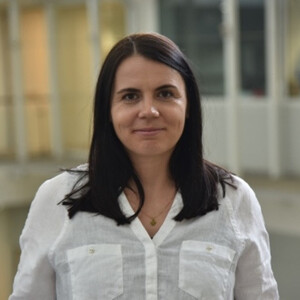
PEB
scientist Dr Joanna Melonek has been named a 2021 West Australian
Tall Poppy.
The Young Tall Poppy Awards are presented annually by the Australian Institute of Policy and Science (AIPS) as a recognition of individuals who combine world-class research with a passionate commitment to communicating science and who demonstrate great leadership potential.
The prestigious Young Tall Poppy Science Award recognises Joanna’s work at the Australian Research Council (ARC) Centre of Excellence in Plant Energy Biology (CoE in PEB) within the School of Molecular Sciences at the University of Western Australia.
Joanna’s research focuses on restorer-of-fertility-like (RFL) genes and their application to hybrid breeding in crops, with particular emphasis on wheat. Hybrid varieties are favoured for their attractive agronomic traits, higher and more stable yields. However, for many staple crops like wheat or barley, hybrid seed production on a commercial scale remains difficult. Joanna’s research is helping to change that.
Joanna collaborates with world-leading academic institutes and research consortia in Europe and Canada. In 2014, she has started a successful collaboration with Limagrain, the 4th largest seed producing company in the world. These collaborative projects have led to high-impact publications and patent applications, which positioned her as an internationally recognised expert in the field of RFL genomics in cereals.
In addition to her research work, Joanna has been proactively involved in science communication and outreach activity. She has given radio and journal interviews where she explains her research and the benefits of modern plant breeding to the Australian growers and broader community. To promote science, she has spoken to hundreds of high-school students, their parents, and teachers to provide a glimpse into the exciting world of STEM.
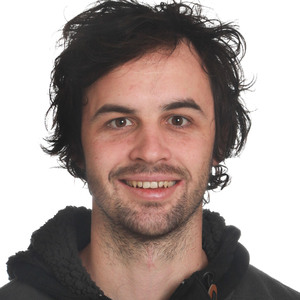
Dr Adam Reddiex has been a postdoctoral researcher with PEB in the Borevitz lab at The Australian National University since joining the centre in 2018. There he studies how the effects of mutation change in different environments.
An interest in wildlife led Adam to obtain his Bachelor’s degree in zoology and ecology (Honours) at the University of Queensland, after which he pursued a PhD in genetics and evolutionary biology. As a zoology major Adam didn’t initially see himself heading towards plant biology, but now that he’s here Adam is more than happy with the opportunities PEB has presented him.
“I used to study how genetics differed between the sexes and how that could constrain evolution using fruit flies. As an undergraduate, I didn’t invest much in botany or molecular biology, yet I’ve found myself in the field of statistical genetics studying plant cells. Now I investigate how mutations can have different effects in the different cell-types of root tissue in plants.”
“In 2019 I was happy to be a part of a team of past and present PEB members that simultaneously looked at the role of genetics and epigenetics in a number of traits of Brachypodium. We submitted the paper late 2019.”
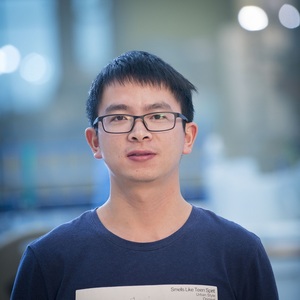
Dr Changyu (Joe) Yi is a bioinformatician at La Trobe University, having recently switched roles after spending 4 years completing his PhD in Prof Jim Whelan’s lab. Joe joined PEB as a PhD student in 2015 upon completing his Master’s degree in horticulture, for which he received the 2014 Zhejiang University Meritorious Student Award, Outstanding Graduate Student.
On top of submitting his PhD thesis in 2019, Joe was invited to speak about his research at the 2019 Australian Society of Plant Scients conference, and during an online PEB seminar.
“The focus of my study was to identify key regulators of phosphate acquisition and use in Arabidopsis. To achieve this purpose, I performed genome-wide association studies and RNA-sequencing using a genetically diverse population of Arabidopsis accessions.”
“I’ve been interested in plants since I was a child. I am keen to know why there is so much diversity among plants, and how plants grow, develop and adapt to different environments. I have learned a lot during my PhD, including theoretical knowledge such as how plants respond to abiotic stress as well as bioinformatic skills. I really enjoyed being part of the PEB centre.”

Dr Akanksha Srivastava obtained her Master’s degree in India before moving to the London, UK for an internship at Kingston University. While at Kingston University Akanksha become increasingly interested in applied machine learning, leading to her joining the Lister Lab at PEB in 2014 as PhD student in computational biology. Akanksha’s PhD work saw her use machine and deep learning algorithms to identify DNA methylation in plants and mammalian genomes.
“I have always been fascinated with developing computational tools and software for exploring biological data. As I became more interested in applied machine learning, I wanted to pursue a career in this area and fortunately, I found Ryan Lister. He was the starting point of my amazing journey with PEB center and played a significant role in my career.”
In 2019 Akanksha published a new machine learning based computational method called Histogram of Methylation (HOME), and after four years with PEB moved on to a post-doc position at The Australian National University.
“I’m now doing my post-doc at The John Curtin School of Medical Reesarch in the area of epitranscriptomics. I am developing software using deep learning algorithms to identify the RNA modifications in different species such as plants and animals, using nanopore signal data.”
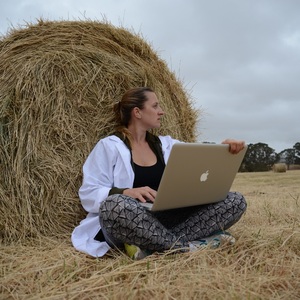
Dr Cornelia Hooper is a Research Fellow in Professor Ian Small’s PEB lab at The University of Western Australia. Her current work focuses on computational biology, researching metabolic network dependencies in crop plants to identify breeding targets.
Conny has a love of modelling and genome-scale computational networks. As a PhD student she delved deep into the origins of childhood brain cancers using viral vectors, embryonic stem cells and complex network modelling.
“I am big on riddles and love the idea of simulating thousands of metabolic conditions that would take too long using laboratory experiments. This can be used to predict biological outcomes like increased growth, energy output and nutrient use.”
After her PhD Conny was deciding whether to move into the biotech industry or try big data science, when PEB’s Professor Ian Small snapped her up, and introduced her to plant science.
“Since joining PEB, I’ve built a collection of interactive resources describing the location of proteins in the cells of crops (cropPAL) as well as Arabidopsis (SUBA4). Those resources have been used by over 400 published studies worldwide since 2012.”
“The complexity of plant genomes and proteomes offer vast amounts of metabolic combinations that we still don’t know much about.”
Conny is also passionate about using science to help address pressing social and environmental issues, such as climate change.
“I am planning to integrate the rising CO2 levels into my models to identify breeding targets for crops species to improve nutrient efficiency and increase yield, despite climate change.”
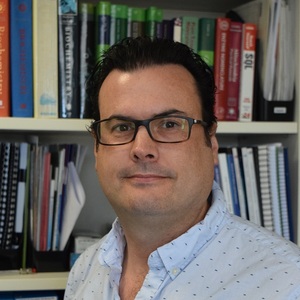
Nic is a senior lecturer at The University of Western Australia, and has been a part of PEB since it began back in 2006. Other than a stint at the University of Oxford, Nic has been with UWA since moving from New Zealand to pursue his PhD in 2000. He has held positions within PEB as an ARC Future Fellow, ARC Post-Doctoral Fellow, and is now the head of his own lab.
The Taylor lab focuses on research to better our understanding of how metabolites, proteins and lipids influence yield, and how plant cells respond to extremes of temperature and salinity.
“I really hope that in some way my research can contribute to the global efforts to address global hunger, malnutrition and food security. I get excited by the new discoveries that my students and I make together, when that LED moment goes off and you both see the possible impacts of the data you are looking at, and how this influences our understanding of biology and the role it might play in food security.”
Nic’s career as a scientist grew out of a lifelong love of chasing down answers to questions that fascinated him.
“I have had a fascination with science for a long time, I grew moulds at primary school for a science project one year and did a comparative growth rate experiments for turf grasses in another year. My interest in how plants respond to their environment came about when I learned that if a homeotherm’s temperature changes by more than a few degrees it is life threatening due to breakdown of their cellular biochemistry but plants survive temperature changes of more than 30 ˚C in a single day. From that point on, I wanted to know why.
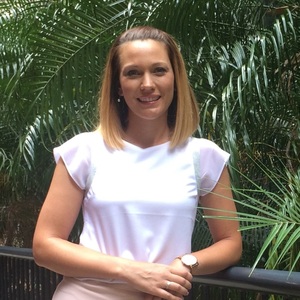
Allison is a post-doctoral research fellow with PEB currently working on an International Wheat Yield Partnership (IWYP) project. The project looks at the energy use efficiency of a plant to establish if it is possible to divert energy used for growth into yield.
“My role in this project has been to perform extensive phenotyping experiments as well as construct a genetic map to determine the regions of the genome that may be involved the plant energy use, and how we can use this to improve wheat’s ability to divert energy from biomass and into yield.”
Allison is also involved with other research falling within her speciality of wheat genetics, such as improving salinity tolerance of wheat for Australian soils.
“Since starting with PEB I have been fortunate to receive 2 South Australian Grains Industry Trust (SAGIT) grants, in 2017 and 2018. These grants are being used to develop a Recombinant Inbred Line population which will be screened using high throughput phenotyping under salinity stress as well as develop a genetic map to determine QTL for tolerance.”
A focus on using science to benefit farmers comes as a natural extension of Allison’s childhood growing up in a farming family.
“I grew up in Mildura in the upper North West of Victoria on the Murray River, on the border of New South Wales and only one hour from South Australia. Being a part of a farming family I hope that the research we do as scientists will make a difference so the prosperity of Australian farming can continue.”

Josh Mylne is an Associate Professor and lab head in the School of Molecular Sciences at The University of Western Australia. Josh has been a PEB affiliate since moving from his home state of Queensland to WA in 2013 in order to start up his lab. His research interests cover protein evolution, molecular mechanisms underlying the biosynthesis of bioactive peptides and helping the discovery of novel herbicides.
Josh recently travelled to Minnesota, USA as part of the Fulbright Program, the country’s flagship foreign exchange scholarship. Fulbright aims at increasing bi-national research collaboration, cultural understanding, and the exchange of ideas. While rewarding, Josh described how the experience came with some particularly chilly challenges.
“Minnesota gets seriously cold in winter, but I cycled to work every day on a bike with metal studs impregnated in the tyres and wearing a balaclava, battery-powered socks, and other serious protection. When the mercury dipped below -20, the grease in the rear hub of the bike becomes so viscous that the spring holding the gears doesn't re-engage quickly which means every time you start pedalling it takes a while to go anywhere.”
Thankfully Josh made it through the sub-zero adventure without losing any fingers to frostbite, and managed to strengthen some valuable professional collaborations.
“My lab (mylne.org) is doing more and more protein crystallography and the trip allowed me to strengthen an existing collaboration with an outstanding young structural enzymologist called Mikael Elias, as well as develop some of the skills needed to process crystallography data and assign structures.”
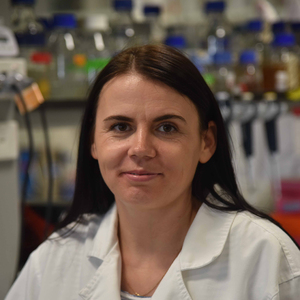
Dr Joanna Melonek is a research fellow in Professor Ian Small’s PEB lab at The University of Western Australia. Joanna’s career path has taken her from a Master’s thesis in her home country of Poland, to a PhD position in Germany, then on to postdoctoral work in sunny Perth, Australia. Her research focuses on plant mitochondria, and in particular a family of proteins known as pentatricopeptide repeat proteins (PPRs).
“I’m particularly interested in a sub-set of PPRs called restorer-of-fertility proteins as they have potential application in hybrid crop breeding. Hybrid crop varieties typically produce higher and more stable yields under changing environmental conditions. As such, this research into molecular tools for hybrid crop production could help in meeting the future food demands for our growing human population,” said Joanna.
In 2018 Joanna was awarded an Early Career Award by the International Wheat Genome Sequencing Consortium (IWGSC), which supported efforts to showcase her new findings on the PPR family to the international wheat genomics and broader scientific community at the Plant and Animal Genome Conference in San Diego (US). These findings come about through a collaboration between herself, Professor Small, Professor Nils Stein, and Dr. Ruonan Zhou.
“I think that I was really lucky to team up with Professor Nils Stein from The Leibniz Institute of Plant Genetics and Crop Plant Research. I still remember my first meeting with Nils that I set up during the Plant Genomics conference in London in 2015 (and how nervous I was!). At first, due to restrictions form our commitments to industrial partners we decided to collaborate only on barley and rye genomes. For this collaborative project we got support from the Australia-Germany Joint Research Co‑operation Scheme. After few bilateral visits Nils invited us to join the IWGSC to analyse the PPR family in the wheat Chinese Spring genome. Luckily for us this analysis was included in the article describing the first fully assembled and annotated wheat reference genome published last year in Science. These collaborative projects made me realise how much more effective science is when researchers with expert knowledge in different areas engage in a collaborative research!”
Joanna’s plans for the future involve a continued focus on the PPR protein family she has become so interested in.
“In the future I hope to continue my work on cereal genomics, in particular PPR-mediated restoration of fertility and the application of this to hybrid crop breeding. This research will be valuable, not only to the scientific community, but to plant breeders looking to develop new hybrid varieties, particularly in globally significant crops where hybrids have historically been difficult to create, such as wheat and barley.”
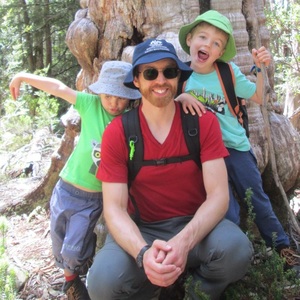
Dr Nathan Tivendale is a research fellow in the Millar group at PEB’s UWA node. His research aims to further our understanding of energy use and efficiency in plants, with a focus on protein synthesis and degradation. Originally from Tasmania, Nathan joined PEB in 2019 when he decided to shift back to academia after a time in industry.
“After my PhD, I accepted a Postdoctoral position at the University of Minnesota, which broadened my horizons in many ways. It was after my postdoc that I began to feel that perhaps I would be better suited to industry research, and I was fortunate enough to get an industry job in my home state of Tasmania. It was nice for a while, but after a few years, I found I missed academia and that’s how I ended up here at UWA.”
Part of what drove Nathan back to academia was a feeling that research is the best method for unlocking the full biochemical potential of plants. Through science, Nathan believes, people can use plants to benefit humankind.
“Plants are so important to humans. They provide food, fibre, pharmaceuticals and fuel. I am excited to be involved in increasing our fundamental understanding of the chemistry of plants and coming up with ways to harness this new knowledge for human benefit.”
And Nathan isn’t just talk when it comes to making an impact, his research is well cited, and has led to tangible advancements in his sub-field.
“When I was a PhD candidate, I wrote a paper called ‘Reassessing the role of N-hydroxytryptamine in auxin biosynthesis’, which challenged long-held theories regarding how an important chemical messenger in plants is made. After this article was published, there was a dramatic shift in scientists’ understanding of this sub-field.”
As for who to thank for his passion and interest in science, there are a couple of people Nathan can think of who helped him along the way.
“It was largely my father who sparked my interest in science. While he didn’t work as a scientist, he had a science degree and a highly rational and analytical mind. He frequently did home science experiments with us, including one that nearly took of my eyebrows! Also my PhD supervisor, John Ross. He’s such an enthusiastic scientist, with a real thirst for new knowledge and a dogged determination to keep going, even when things are challenging.”

Akila Wijerathna Yapa is a PhD student specialising in agricultural biotechnology in the Millar group at PEB’s The University of Western Australia node. Sri Lankan born and bred, before Akila made his way to Australia he travelled to Israel where he completed his masters in agricultural biotechnology at the Hebrew University of Jerusalem.
Passionate about the boundless potential of plant biotechnology, Akila hopes his work will someday help address global issues such as poverty, hunger and food security.
“I would like to pursue a career where I could work on the effective inclusion of science into policy directives and management. I want to be an innovative and resourceful biotechnologist with a passion to optimize the plant production and to meet the needs of a future world.”
In addition to his PhD research, Akila is interested in communication, and writes on a number of plant science topics such as GMOs, smart foods, gender equity in farming and agricultural trends, for the Sri Lankan based business magazine LMD.
“Agricultural scientists need to communicate with business to explain the opportunities our new technologies can provide for them and their customers. With the rapid growth in the number of companies working in agricultural biotechnology, and other science-driven sectors, there is a growing realization that effective communication between these companies and their stakeholders including investors and the general public is critical to their success.”
As an avid writer, it’s no surprise that English literature was a favourite subject of Akila’s in school, alongside science. It was during school that he became interested in science and began to plan for the career awaiting him.
“English literature and science were always the two subjects that I found myself to be most interested in and were usually the classes I looked forward to attending. I also had two amazing teachers who persuaded me to travel down the scientific path. However, I wanted to be in a lab, working on transgenic plants, GMO. So I decided to pursue agriculture in the university.”
Akila's directory profile can be found here.
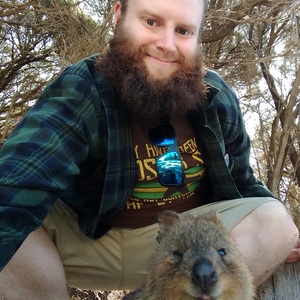
Dr James Lloyd is a research associate developing synthetic tools for plant engineering with the Lister Lab at PEB’s The University of Western Australia node. From the UK, James studied genetics at the University of York, where he won a Sainsbury Studentship in Plant Sciences to fund his PhD at The University of Leeds.
The PhD proposal that landed James the studentship was made possible by a fortuitous meeting with Prof Brendan Davies at an Oxford University dinner in 2008.
“I was seated next to Prof Brendan Davies (University of Leeds). While on my year in industry, I had read his paper on RNA decay in plants and was fascinated by the evolution of this process. We spent most of the meal discussing his current work on this and the next day, as we were leaving the meeting, I asked if I could come to see him in Leeds to discuss applying for a PhD with him, he was excited and we wrote a PhD proposal that the Gatsby Charitable Foundation was kind enough to fund,” James said.
Post-doc life took James to the University of California Berkeley where he worked initially on splicing, before shifting to RNA systems biology.
“I moved to UC Berkeley and spent three years learning how to program and analyse the large datasets that are common to modern molecular biology. There I discovered insights into mechanisms of RNA decay and alternative splicing in various organisms.”
A fascination with DNA and in particular RNA, has been a driving force in James’ career progression so far.
“I always wanted to know how great complexity comes out of something as simple as atoms, or the strings of ATGCs in DNA, so I kept studying science to find out more, and then entered research. I became interested in plant science because I wanted to understand how plants and animals achieve such different structures while using the same building blocks. Are the mechanisms for turning genes on and off the same, or vastly different?”
James' directory profile here
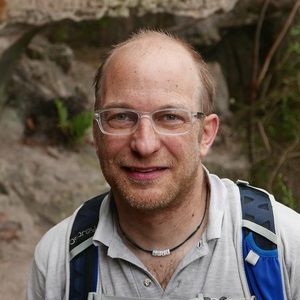
Dr Norman Warthmann leads the molecular biology work at the Plant Breeding and Genetics Laboratory of the United Nations division in Seibersdorf, Austria. The laboratory is a joint unit of the UN’s Food and Agriculture Organization (FAO) and the International Atomic Energy Agency (IAEA), dedicated to securing the world’s food future through developments in crop nutrition, plant breeding, pest control and livestock health.
“I am getting to work on one of the biggest challenges of our time: Sustainable intensification of our agricultural systems, improving livelihoods while reducing the environmental footprint. It is a very rewarding experience,” Dr Warthmann said.
Norman’s time with the ARC Centre of Excellence in Plant Energy Biology began in 2014 when he joined Justin Borevitz’s group at The Australian National University. His work with the centre focused on whole-genome approaches to conservation genetics and breeding.
“Different responses of different genotypes in similar environments hint to genetic differences, which one can then set out to identify and study, and the tools to do this have become ever more powerful.”
Despite working at the microscopic scale of cells and genes, Norman’s perspective has always been to take at a wider view of the world, and the place of plants within it.
“The notion that most everything around us, what we eat, wear, and make our furniture from, is ultimately produced by plants. Plants put all this together, one C-atom at a time, which they fish out of an atmosphere where CO2 is about 400 parts per million. That this should work with mostly sunlight and water blew me away, and I majored in Plant Physiology to understand how.”
The drive to understand plants on their most fundamental level has taken Norman from success to success in his career, however he remains humble about his achievements.
“I am tempted to say that I got where I am through “hard work”, but that is not true. I got were I am mostly by serendipity, through mentors who believe in me, who opened doors and led by example. With this support, “work” did not feel like work, but like a world full of opportunities. All that was left for me to do was to see and grab them.”
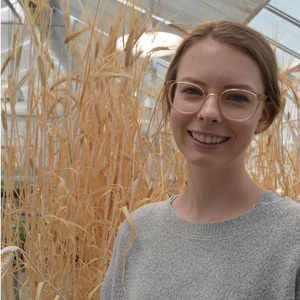
Samantha is a PhD student at the University of Adelaide looking at the role of plant water channels, or aquaporins, in water and ion movement in plant cells.
Samantha’s passion about plant biology started in her high school science class with one teacher in particular standing out as a special inspiration.
“For as long as I can remember I’ve had an interest in science, but was inspired to study biology at university by my high school biology teacher. I got into plant science because they were by far, in my opinion anyway, the most interesting subjects in my degree! Plants are amazing!” Samantha said.
With the wind of a role model at her back Samantha went on to complete her Bachelor of Biotechnology with Honours at the University of Adelaide. Her honours research project introduced her to the fascinating world of aquaporins, and the many unsolved questions surrounding them. From there her PhD research has primarily been focused on a type of plant aquaporin that is permeable to both water and ions (like sodium), and how they function in plant cells. She has been working on uncovering the features of these aquaporins that enable it to conduct both water and ions, and how these aquaporins are regulated by the plant cell. The problem solving involved in this research is part of what drives Samantha’s passion.
“I really enjoy being able to pursue the questions that interest me most. Being a scientist allows you to think creatively and analytically to solve problems.”
Samantha’s hope is that through her research a greater understanding of how these water and ion permeable aquaporins work could lead to improving crops to better cope with stressful environments like drought and salinity. Samantha is keen to play a role in securing global food security in the face of climate change, and seeing how her lab work might be adapted into real crop improvements.
As featured in People of Plant Energy Biology
Samantha's directory profile here
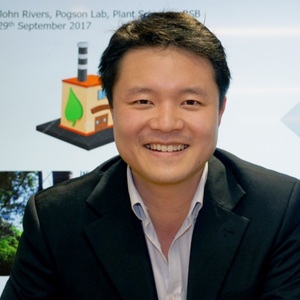
When John Rivers received his PhD from The Australian National University (ANU) it marked the end of one journey and the beginning of another. Even before finishing up the PhD John had his eyes on moving toward a position that bridged academia and industry. "I became fascinated in the specifics of how ideas get out - who do I talk to? Who can help me turn this idea into something that can benefit society?"
It was during his time as a student with PEB that John’s major chance to engage with industry arrived, after winning the 24 hour Australian French Entrepreneurship challenge as part of the ANU team. The grand prize was a tour of innovation and entrepreneurship sites in France.
At this time he said “the visit broadened my perspective about how my experience in a STEM PhD might be applied in the real world. There is much more work for people in France acting as mediators between academia and industry, for example. Now I know this job actually exists, it is what I want to do post-PhD: helping plant scientists to interact with industry and commercialise.”
With a clear vision of the area he wanted to move into, and exposure to real life examples of people in those positions, John set out to find his own opportunity. It didn’t take long. A chance meeting with Lauren Du Fall from the Grains Research and Development Corporation (GDRC) would set the stage.
“We had a chat in the lab, and I indicated an interest in being closer to industry applications on the science-industry pipeline. That resulted in a temporary position, which was supposed to end in March 2018, but the need was still there, so they offered me a permanent job.”
As a Genetic Technologies Officer on the Grains Research and Development Corporation’s (GRDC) Statistics for the Australian Grains Industry project, John is achieving what he set out to do - working at the intersection between science, industry and society.
Image courtesy of Sharyn Wragg, ANU
